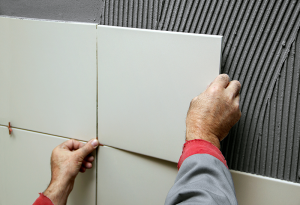What is tile adhesives used for?
What is tile adhesives used for?
Tile adhesives, also known as tile mortar or tile glue, are specialized bonding agents used in the installation of tiles. These adhesives play a crucial role in ensuring the durability, stability, and longevity of tiled surfaces. In this comprehensive exploration, we will delve into the various aspects of tile adhesives, including their composition, types, application methods, and the significance of using them in different settings.

1. Introduction to Tile Adhesives:
Tile adhesives are designed to bond tiles securely to different substrates, creating a stable and lasting surface. These adhesives are formulated to meet the specific requirements of various tiling applications, offering a strong and reliable bond between the tile and the substrate.
2. Composition of Tile Adhesives:
Tile adhesives consist of a carefully balanced blend of key components, each contributing to the adhesive’s performance. These components include:
- Portland Cement: A fundamental ingredient providing strength and durability.
- Fine Aggregates: To enhance the adhesive’s consistency and improve its bonding properties.
- Polymer Additives: These can include latex, acrylics, or other polymers, which enhance flexibility, adhesion, and water resistance.
- Fillers and Modifiers: To fine-tune the adhesive’s properties and optimize performance.
The specific composition can vary based on the type of tile adhesive and the intended application.
3. Types of Tile Adhesives:
Tile adhesives come in various types, each tailored to specific conditions and tile materials:
- Cementitious Adhesives: Comprising cement and other additives, these adhesives are suitable for standard ceramic tiles in dry or wet areas.
- Acrylic Adhesives: Featuring acrylic polymers, these adhesives offer improved flexibility and adhesion. They are suitable for a range of tile types.
- Epoxy Adhesives: Known for exceptional strength and chemical resistance, epoxy adhesives are ideal for demanding applications, such as heavy-duty industrial settings.
- Ready-Mixed Adhesives: These adhesives come pre-mixed, simplifying the installation process. They are often used for small-scale projects or DIY applications.
4. Application Methods:
The application of tile adhesives involves a systematic process to ensure a secure bond. This typically includes:
- Surface Preparation: Ensuring the substrate is clean, dry, and structurally sound.
- Mixing: Following manufacturer guidelines to achieve the correct consistency.
- Application: Spreading the adhesive evenly using the appropriate trowel.
- Tile Placement: Setting tiles firmly into the adhesive, ensuring proper alignment and spacing.
- Grouting: Once the adhesive has cured, grout is applied to fill the spaces between tiles.
5. Importance of Tile Adhesives:
Tile adhesives are essential for several reasons:
- Bonding Strength: They provide a strong bond between the tile and the substrate, ensuring tiles remain securely in place.
- Flexibility: Many tile adhesives offer flexibility, accommodating substrate movement without compromising the bond.
- Water Resistance: Essential in wet areas, tile adhesives are formulated to resist water, preventing damage to the substrate and ensuring long-term durability.
- Ease of Application: With various formulations, including ready-mixed options, tile adhesives cater to the needs of both professionals and DIY enthusiasts.
6. Applications of Tile Adhesives:
Tile adhesives find application in diverse settings:
- Residential Construction: Used in kitchens, bathrooms, and other areas where tiles are a common flooring or wall covering.
- Commercial Construction: Applied in commercial spaces, including offices, malls, and hotels, where durable and aesthetically pleasing surfaces are essential.
- Industrial Settings: Epoxy adhesives are employed in industrial environments where chemical resistance and high strength are critical.
- Infrastructure Projects: Tile adhesives play a role in large-scale projects, such as subway stations, airports, and other public spaces.
7. Challenges and Best Practices:
While tile adhesives offer numerous benefits, challenges can arise if not used correctly. Common issues include:
- Improper Surface Preparation: Inadequate preparation can compromise the bond between the adhesive and the substrate.
- Incorrect Mixing: Deviating from recommended mixing ratios can affect the adhesive’s performance.
- Inadequate Curing Time: Rushing the curing process can lead to weakened bonds and compromised durability.
Adhering to best practices, following manufacturer guidelines, and choosing the right type of adhesive for each application are crucial for success.
8. Environmental Considerations:
As environmental awareness grows, there is an increasing focus on eco-friendly adhesive options. Manufacturers are developing adhesives with reduced environmental impact, incorporating recycled materials and minimizing emissions during production.
9. Future Trends:
The tile adhesive industry continues to evolve with advancements in materials and technology. Future trends may include:
- Smart Adhesives: Adhesives with embedded sensors for monitoring structural integrity.
- Biodegradable Formulations: Further development of adhesives with minimal environmental impact.
- Digital Tools: The integration of digital tools for precise application and monitoring.
10. Conclusion:
Tile adhesives are indispensable in modern construction and design. Their role in ensuring the stability and longevity of tiled surfaces cannot be overstated. From residential to industrial applications, the versatility and performance of tile adhesives contribute significantly to the aesthetics and functionality of diverse spaces. As the industry continues to innovate, embracing new materials and sustainable practices, the future of tile adhesives holds exciting possibilities for enhanced performance and reduced environmental impact.